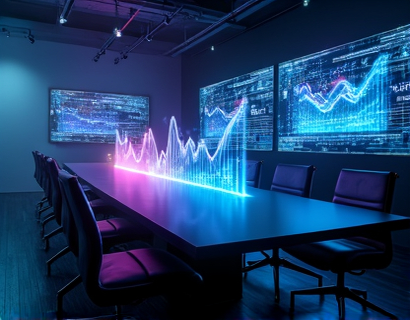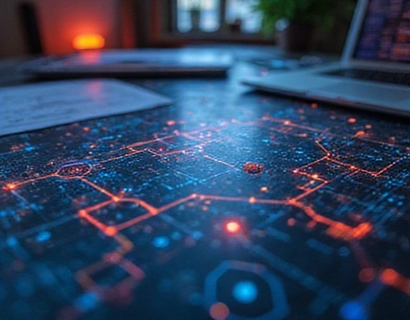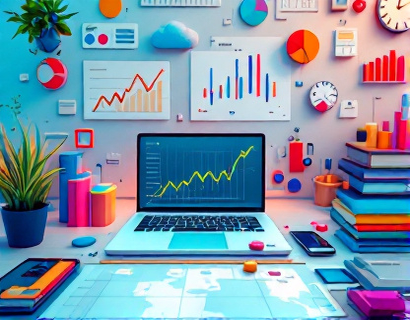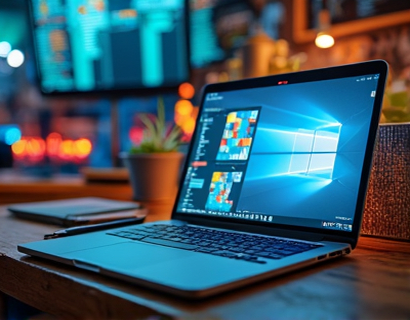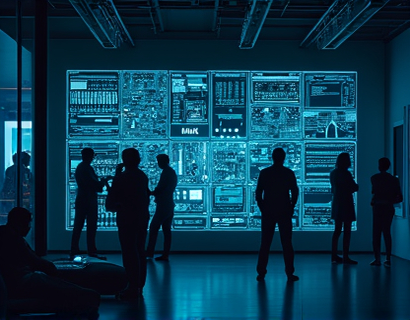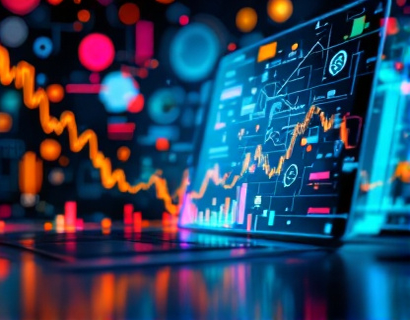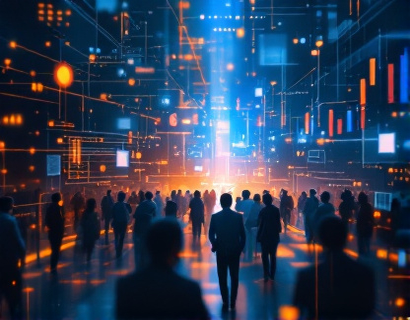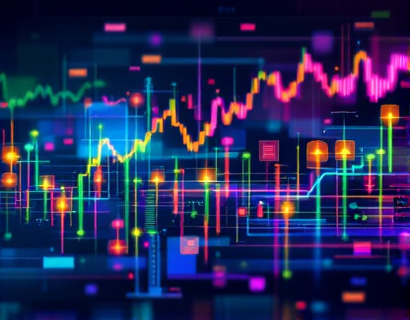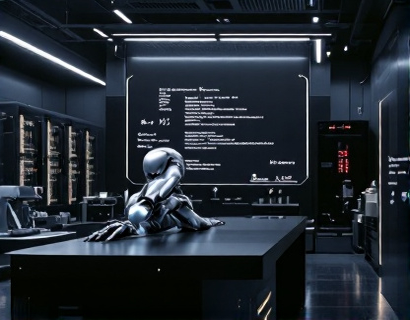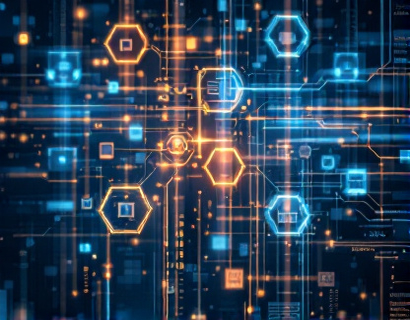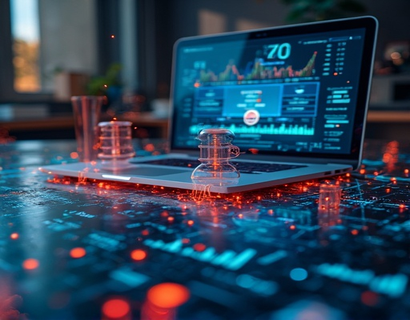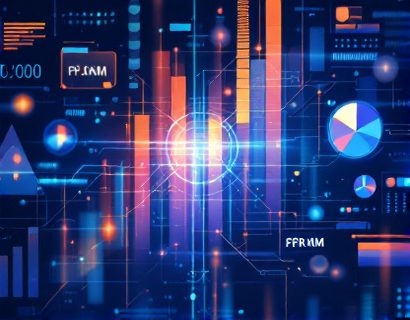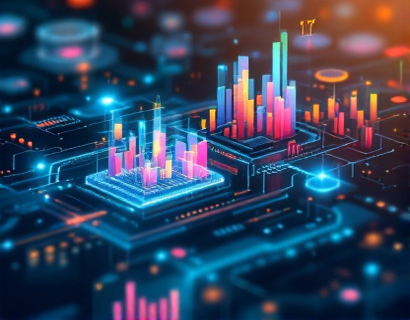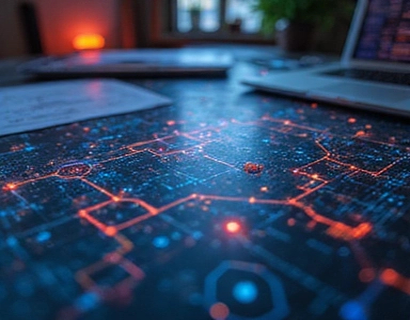Crypto and AI: Transforming Digital Engagement for Next-Gen Ecosystem Solutions
The integration of blockchain technology and artificial intelligence (AI) is ushering in a new era of digital engagement, fundamentally transforming how users interact with technology and each other. This synergy between crypto and AI is not just a technological advancement but a paradigm shift that promises to enhance user experiences, drive innovation, and unlock unprecedented growth opportunities in the tech ecosystem. This article delves into the intricate ways these advanced technologies are reshaping digital interactions, offering insights for tech enthusiasts and early adopters who are keen on harnessing the power of cryptocurrency and AI to elevate their digital experiences.
The foundation of this transformation lies in the unique properties of blockchain technology. Blockchain's decentralized, transparent, and secure nature provides a robust framework for building trust and ensuring integrity in digital transactions. By eliminating the need for intermediaries, blockchain reduces costs and increases efficiency, making it an ideal platform for various applications ranging from finance to supply chain management. When combined with AI, which excels in processing and analyzing vast amounts of data to derive actionable insights, the potential for innovation becomes immense.
One of the most significant impacts of integrating blockchain and AI is in the realm of personalized user experiences. AI algorithms can analyze user behavior and preferences in real-time, enabling systems to adapt and tailor content, recommendations, and services to individual needs. This level of personalization is crucial in maintaining user engagement and satisfaction. For instance, in the context of digital content platforms, AI can curate personalized news feeds or entertainment recommendations, while blockchain ensures that content creators are fairly compensated for their work through smart contracts.
Another area where crypto and AI are making waves is in identity verification and management. Traditional methods of verifying user identities are often cumbersome and prone to fraud. Blockchain provides a secure and decentralized way to store and manage digital identities, while AI can enhance this process by detecting anomalies and preventing unauthorized access. This combination not only improves security but also streamlines the user onboarding process, making it more seamless and user-friendly.
The financial sector is also witnessing a revolution thanks to the convergence of blockchain and AI. Cryptocurrencies, powered by blockchain, offer a new paradigm for financial transactions, providing faster, cheaper, and more secure alternatives to traditional banking systems. AI, on the other hand, can enhance these systems by predicting market trends, detecting fraudulent activities, and optimizing investment strategies. For example, AI-driven trading bots can analyze market data in real-time and execute trades based on predefined criteria, while blockchain ensures the transparency and immutability of these transactions.
In the domain of supply chain management, the integration of blockchain and AI is transforming how products are tracked and verified. Blockchain provides a transparent and tamper-proof ledger for recording transactions, while AI can analyze this data to predict supply chain disruptions, optimize inventory levels, and ensure compliance with regulatory standards. This synergy not only enhances efficiency but also builds trust among all stakeholders involved, from manufacturers to consumers.
The healthcare industry is another sector that stands to benefit greatly from the fusion of blockchain and AI. Patient data, when stored on a blockchain, can be securely shared among healthcare providers, ensuring that patients receive coordinated and high-quality care. AI algorithms can analyze this data to identify patterns, predict disease outbreaks, and personalize treatment plans. This combination not only improves patient outcomes but also reduces healthcare costs by eliminating redundant tests and procedures.
In the realm of gaming, blockchain and AI are creating immersive and economically viable experiences. Blockchain enables the creation of true digital ownership of in-game assets, allowing players to buy, sell, and trade these assets on decentralized markets. AI can enhance gameplay by generating dynamic content, creating intelligent non-playable characters (NPCs), and personalizing the gaming experience based on player behavior. This not only increases player engagement but also opens up new revenue streams for game developers.
The Internet of Things (IoT) is another area where the integration of blockchain and AI is driving innovation. Blockchain can secure the vast amounts of data generated by IoT devices, ensuring privacy and preventing unauthorized access. AI can process this data in real-time, enabling smart devices to make informed decisions and automate tasks efficiently. For example, in smart homes, AI can optimize energy usage based on real-time data, while blockchain ensures that data from different devices is securely and transparently shared.
For tech enthusiasts and early adopters, the opportunities presented by the convergence of blockchain and AI are vast. These technologies are not only reshaping existing industries but also giving birth to new ones. For instance, the rise of decentralized finance (DeFi) platforms is redefining how we think about banking and financial services. AI-driven DeFi applications can offer sophisticated financial tools, such as automated trading, risk management, and portfolio optimization, all while benefiting from the security and transparency of blockchain.
Moreover, the development of decentralized applications (dApps) is gaining momentum, powered by blockchain and AI. These applications run on decentralized networks, reducing reliance on centralized servers and enhancing resilience against cyber attacks. AI can enhance dApps by providing intelligent features, such as natural language processing for chatbots, computer vision for image recognition, and predictive analytics for user behavior. This combination makes dApps more functional, secure, and user-friendly.
The educational sector is also benefiting from the integration of blockchain and AI. Blockchain can ensure the integrity and traceability of educational credentials, making it easier for students to prove their qualifications to employers and educational institutions. AI can personalize learning experiences by adapting to each student's learning pace and style, providing tailored resources and feedback. Smart contracts can automate the verification and issuance of certificates, reducing administrative overhead and ensuring authenticity.
In the creative industries, blockchain and AI are transforming content creation and distribution. Blockchain provides a transparent and fair system for artists to monetize their work, with smart contracts ensuring that creators receive their due compensation. AI can assist in content creation by generating music, art, and even writing, while also helping in marketing and distribution by analyzing audience preferences and optimizing promotional strategies.
As the tech ecosystem continues to evolve, the synergy between blockchain and AI will play a pivotal role in driving growth and innovation. For those interested in exploring these technologies, the future is promising. By leveraging the strengths of both blockchain and AI, individuals and organizations can create more secure, efficient, and engaging digital experiences. Whether you are a developer, a business owner, or a tech enthusiast, the possibilities are endless, and the journey towards a more connected and intelligent world has just begun.





